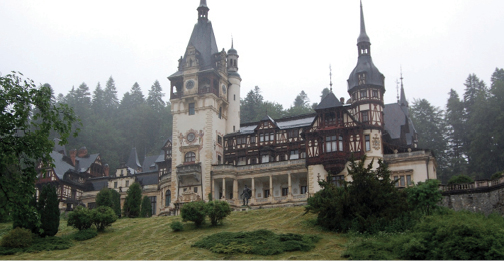
Romania may seem like a strange stop while on a journey through a job-transition period, but I spent 10 days there in June 2014 before starting my new position as manager of Hercules, California. I was committed to finding professionally engaging activities while in transition, so I looked at volunteer and pro-bono opportunities, including those in other countries.
Luckily, I was engaged in some fulfilling interim assignments. In early June, when I knew that my Hercules position had been secured, I came across the opportunity to participate in an American Society for Public Administration (ASPA) delegation to Romania. Always interested in experiences that will broaden my professional perspectives, I opted to use part of the two weeks I had between jobs to participate in the 10-day trip.
Exploring the Challenges
The purpose of the trip was to share leading public administration practices and to participate in a four-day conference in Romania, while also embarking on site visits. The visit coincided with the 25th anniversary of the fall of communism in that country.
The international exchange explored challenges with Romanian local government counterparts regarding the continuing decentralization of services across a still-emerging democracy with a strong tradition of central control. The itinerary included meetings with public officials in Bucharest and in a variety of counties and cities in the central and eastern regions of Romania.
One of the first meetings was with a Senate committee composed of five national senators who were charged with shepherding a controversial regionalization and decentralization plan through the legislature. This exchange proved to be extremely insightful as the process was a key concern to local government officials we interacted with during the balance of the trip.
A four-day forum titled Collaborative Public Management: Pathway to Good Governance at the Local Level was the centerpiece of the international public management exchange. This forum was attended by some 100 participants from local governments in Romania.
Sessions included presentations by Romanians and included several topics that are also familiar to U.S. managers:
- Community and citizen engagement: managing change, community development, and volunteer involvement.
- Collaborative governance across local jurisdictions and sectors.
- Stronger and safer communities.
- Performance management.
- Curbing corruption: making ethics and justice a priority.
- Energy options for today and tomorrow.
- Global view of centralized and decentralized approaches.
Interesting Insights
The balance of the itinerary was dedicated to visits to local government offices and facilities, as well as historic sites, including touring the environmentally significant Danube Delta area in order to gain a better appreciation for Romania.
It was interesting to learn that the Romanian participants viewed the United States as having a much more developed local government experience. I found that we face many of the same issues, including engaging residents successfully, especially in such areas as developing the annual budget; delivering services and meeting service demands with diminishing resources; and managing the changing relationship between the central governments (similar to state and federal governments).
One of the most interesting insights was that Romanian local governments generally only undertake what the central government specifically authorizes—unlike local governments in the United States that have a strong tradition of home rule and operate on a more independent basis.
In the July 2014 issue of Western City, the monthly magazine of the League of California Cities, League Executive Director Chris McKenzie summarized this home-rule tradition best from the California perspective: “. . .in the absence of a conflict with a general state law, a city council has the same power to enact a city ordinance without state legislative authorization as it does with it. Why would cities fail to use such a fundamental attribute of home rule?”
Perhaps this approach would be key to a successful transition to a more decentralized relationship between the central government and local governments in Romania.
Personal and Professional Benefits
The effort to involve ICMA members in this delegation was designed to ensure local government practitioners were included and could share hands-on experiences. Former ICMA President and retied City Manager Ed Daley, who is still active in local government in Virginia, and I were the two city managers as part of a delegation that included academic and other public-sector representatives.
I can attest to the great personal and professional benefit from participating and being able to share real-life experiences with others and would encourage my colleagues to seek out these opportunities as part of supporting the “I” in ICMA.
I also can highly recommend this type of opportunity to recharge and sharpen skills in preparation for a new position, especially as someone who had been in transition for a substantial period of time. Being a local government manager is a rewarding yet challenging career, and taking time out to connect with colleagues and be of service to others, especially in an international context, is a reinvigorating experience.
Romania is a beautiful country with engaging and talented local government professionals striving to better their communities, and my stop there proved to be time well spent.
New, Reduced Membership Dues
A new, reduced dues rate is available for CAOs/ACAOs, along with additional discounts for those in smaller communities, has been implemented. Learn more and be sure to join or renew today!
